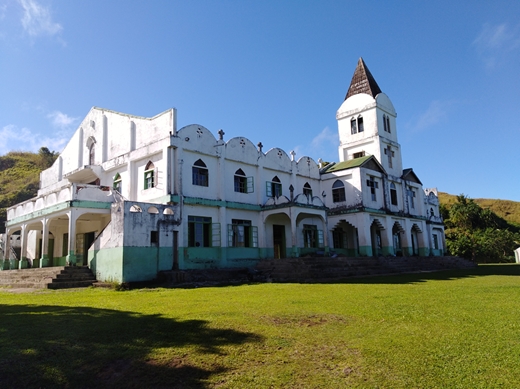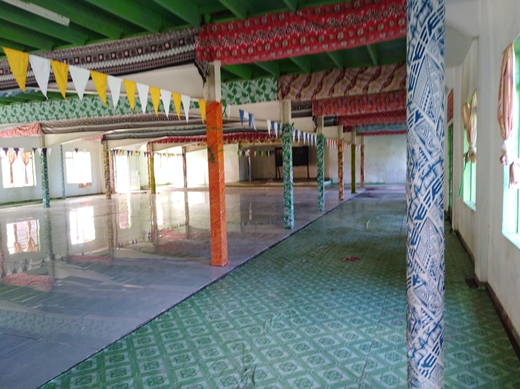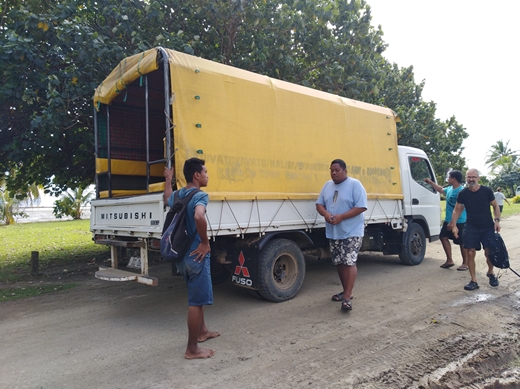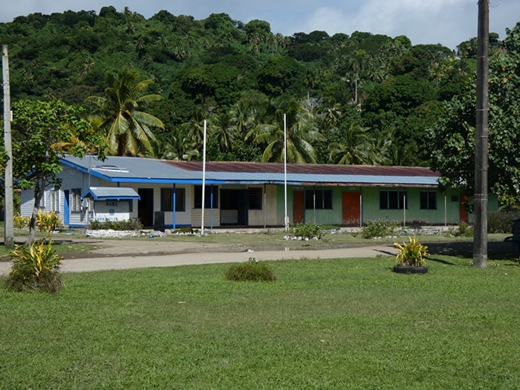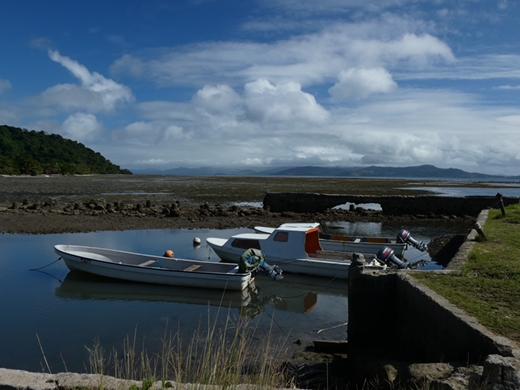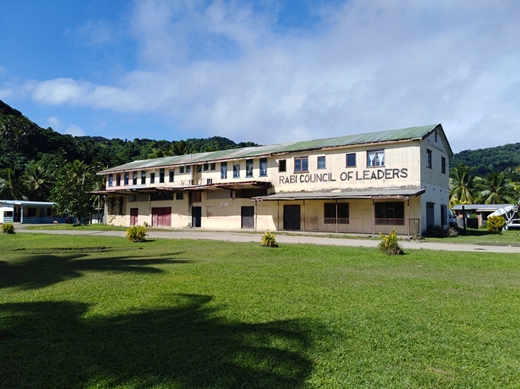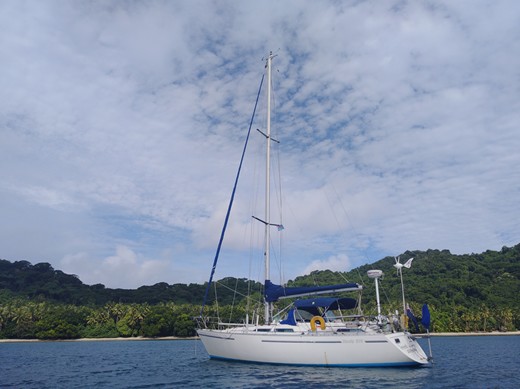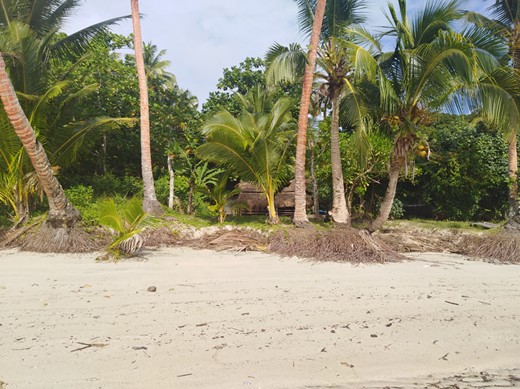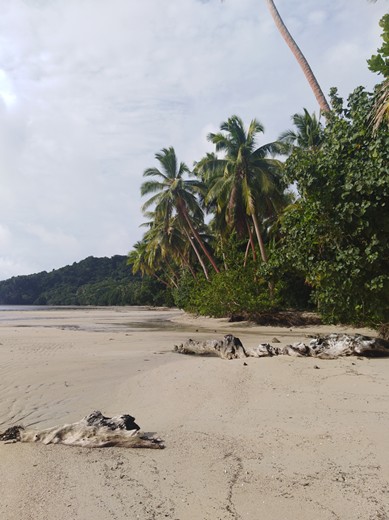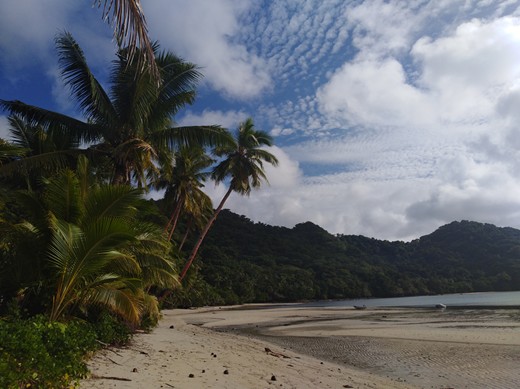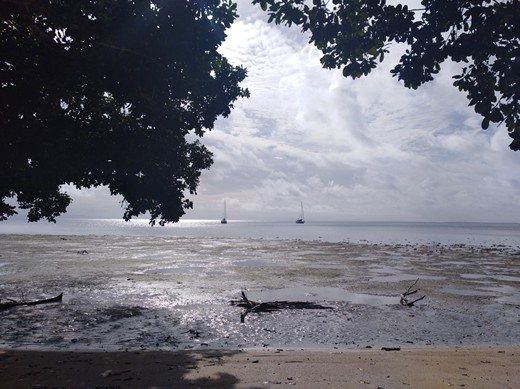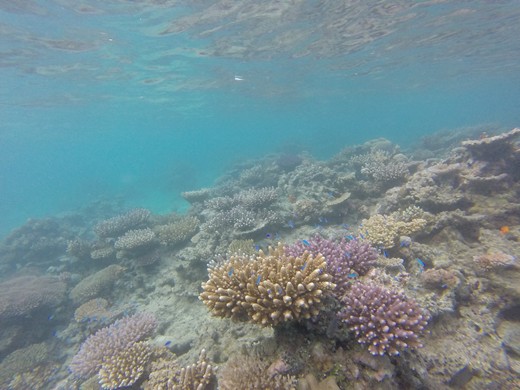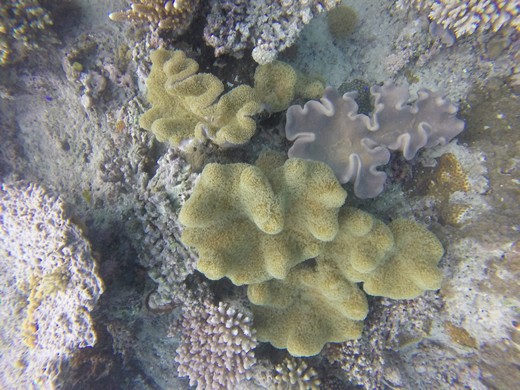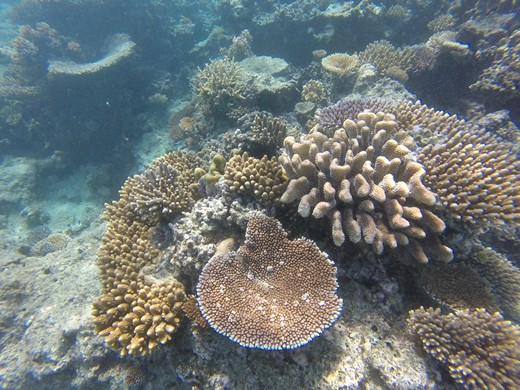Rabi Island

|
Or Rambi as it is pronounced. Rabi Island is inhabited by people from Banaba an island in the Gilbert group administered from Kiribati. In 1900 phosphate was discovered on Banaba by the British Phosphate co. They negotiated to purchase and lease certain areas and to set up a European settlement and mine the phosphate. The phosphate was mined and sold but the Banabans were not compensated as agreed and their food trees were not reinstated. They bought Rabi island and some Banaban settled here. At one time as a people they were extremely rich but now they are probably the poorest nation in the Pacific, a sad story covering almost a century. We came in to Catharine bay at the south of the island, a safe anchorage with good holding and then had to catch a bus to Nuku, the administrative capital to register our presence with the local police. An interesting but uncomfortable journey, the ‘bus’ normally takes about an hour along a dirt road but we had to stop and pick up children from three schools along the way and the driver had to change a wheel due to a puncture.
This is the Methodist church in Catherine Bay, we saw three churches built on this scale on our bus trip to Nuku. The island’s population is just 4,000.
The church was in a sorry state of repair, but decorated inside.
The ‘bus’. By the time everyone was on board it was packed, with people standing all down the middle.
Police HQ and court in Nuku
The harbour
And Council of Leaders building. As there was nobody in the police HQ we checked in with the head of The Council of Leaders, David Richards, and then waited for a bus back. In addition to the administration buildings, Nuku has a school, a large church, post office and a shop where we managed to buy biscuits and crisps for lunch. We would have had at least a three hour wait but we were offered a lift back in the council lorry which had to deliver a tent to Catharine Bay. The trip back was faster but more uncomfortable, same type of truck but no padding on the seats and the driver was in a hurry. Chris on Sea Bear had arrived in the bay so we were able to catch up on his travels and find out information about our next intended stop, Albert Cove. The weather front that had brought the strong winds while we were in Viani Bay made a return visit to Fiji on Thursday and Friday, so we sat it out in Catherine Bay which was a good anchorage – not too deep with good holding on mud and well sheltered. It was still a bit blustery when we left for Albert Cove at the north western end of Rabi Island on Saturday morning. It was the first time since arriving in Fiji that we had been out with enough wind to sail and we enjoyed a gusty trip with just the Genoa set in the smooth seas to leeward of the island. Chris, who sails single handed, had found the entrance to Albert Cove a bit tricky so we took his advice and arrived with good light (sun high and behind) and the tide was helpfully low, so we could see the passage through the reef quite clearly as we approached. We tucked in behind the reef and dropped the anchor on what we hoped was sand, but as we were in 16 – 18 metres there was no chance of seeing the bottom. At that depth we have to put out all of the anchor chain we carry, but there were no strong winds forecast and the only other boat there - Midnight Sun - knew the anchorage well and was happy there.
Serenity at anchor in Albert Cove Albert Cove is a lovely place – a horseshoe bay with a white sand beach and protected by reef. There is no road access so the few families who come here to fish and cut copra do so by boat. When we went ashore on Sunday there was just one man there who was cutting copra. From his description it is a tough life – he has to cut open the coconuts and scoop out the insides then dry the copra for 24 hours over a fire before carrying it all to the shore for collection, all for a very small return. Fishing seemed to be much more lucrative.
The copra cutter’s hut among the trees
White sand and palm trees – it doesn’t get much better than this
For two days Serenity and Midnight Sun had the place to themselves On Monday, the cove got busier with the arrival of more people ashore, some fishermen and a number of yachts, including Mark and Jennifer on Starlet who we had met when we ate at the resort in Viani Bay. John and Wendy from Midnight Sun had told us where the best snorkelling was and we anchored the dinghy on the reef on two occasions to enjoy it. The corals in Fiji are better than we have seen anywhere else on our travels – more colourful and varied, and on our second outing there seemed to be more large fish. Phil caught a glimpse of something really big – maybe a big tuna or possibly a reef shark. When we came to leave we found the dinghy anchor was caught under a rock. It was too deep for us to swim down for and we couldn’t shift it by driving the dinghy around but we were rescued by Mark, who is a diver and has his own gear on board Starlet. He saw we were struggling and came over to dive and free it. It was a great reason to invite them over for a drink and get to know them better!
While we were in Albert Cove Phil worked on our charging system, cleaning and checking connections resulting an improved rate of charge to the batteries. This meant we were able to run our watermaker for longer without needing to use the engine to recharge. Meanwhile Sarah ‘upgraded’ our rainwater collection – making more effective gutters for our bimini from a material that funnelled the water better with the result that we collected several litres of rainwater from a couple of showers and we left Albert Cove with more water in our tanks than when we arrived. Despite this we still need to refill the water tanks, and after 3 weeks away from town we are running low on fresh food, so we are now on our way to Somo Somo on the island of Tavenui to re-provision and sort out our internet connection. Tonight’s anchorage in Naqaiqai Bay is described as a hurricane hole. Its well sheltered on all sides and shallow with very good holding, so for the first time in Fiji we are anchored in less than 10 metres. We saw one house ashore, but there are no lights tonight, just the Barking Pigeons for company. |
